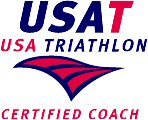Cardiorespiratory Training for Performance Goals
Cardiorespiratory training is extremely important for every athlete. Through all of the components of cardiorespiratory training (aerobic, anaerobic threshold, and anaerobic), athletes can maximize their training to improve endurance, burn more calories (if weight loss is an issue), and improve heart rate recovery between events, all to improve performance.
The key to cardiorespiratory training is intervals. The benefits of interval training are:
- More calories are burned than exercising at a continuous rate.
- There may be an increase in the amount fat calories burned, depending the duration of activity.
- Avoiding monotonous exercise intensities provides positive motivation, making the program easier to stick with.
- Overloading the heart and lungs will increase the efficiency of the cardiovascular and respiratory systems.
- In achieving weight loss, the amount of fat burned during the day is even more important than how much fat is burned during a workout. Studies have shown that interval training raises metabolism after a workout and keeps it higher for a longer period than any "steady state" workout.
Your Cardiorespiratory Training for Performance program begins with a fitness assessment:
- General and Medical History
- Physical Activity Readiness Questionnaire (PAR-Q)
- Medical and Personal Information
- Calculation of your Resting Heart Rate
- Calculation of your Maximum Heart Rate - with any necessary modifications based on medications
- Establishment of Training Target Heart Rate Zones
Based on this data, athletes will begin with an individualized 12-week cardiorespiratory program. This Base Training Program is designed to give each athlete an immediate cardiorespiratory workout program based upon his/her initial cardio assessment. The program consist of a low intensity workout for recovery, a medium intensity day for endurance training (using anaerobic heart rate) and, for some levels, a high intensity day for overloading (using intervals at the peak heart rate). Base Training is a safe and effective 12-week progression for any athlete.
The Base Training progression assumes the athlete is starting his/her off-season program and will start off slowly and build up each week. Some athletes can move through the progression more quickly, while others might want to stay at a lower level for a longer time period to improve that area. Each week will address all or some of these goals, as the athlete progresses. When the athlete finishes the Base Training, he/she should be ready for Sport Specific training. Sport Specific programs are based on intervals to simulate the demands of the particular sport for which the athlete is training.
Some sports have a pre-season program aimed at preparing the athlete for training camp. Others include an in-season program to maintain an athlete's conditioning, without burning him/her out. Each program is designed to work the energy systems needed for that sport. Specific training programs are available for:
- Golf
- Tennis
- Basketball:
- Basketball Pre-Season
- Basketball In-Season
- Soccer:
- Soccer Pre-Season
- Soccer In-Season
- Baseball:
- Baseball Pre-Season
- Baseball In-Season
- Hockey:
- Cardio Strength
- Goalie
- Improve Recovery
- Leg Strength
- Football - Linemen:
- Preseason I
- Preseason II
- Preseason III
- In-Season
- Football - Skill:
- Preseason I
- Preseason II
- Preseason III
- In-Season
How do I begin?
Contact Coach Ken Johnson at for your initial assessment and to discuss developing your complete performance program.








